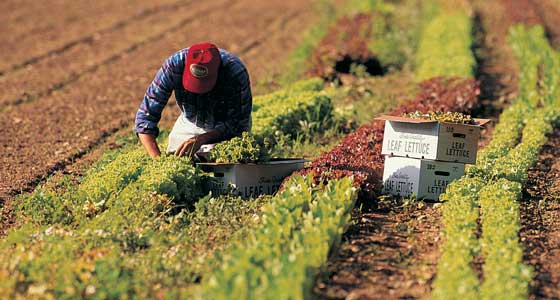Food Safety: No Longer ‘Business as Usual’
Although the Food Safety Modernization Act means that business as usual is obsolete in many ways, it does not address one regular threat to food safety.

The Food Safety Modernization Act (FSMA) is the most sweeping reform of U.S. food safety laws in more than 70 years. Enacted to ensure the safety of the U.S. food supply, the law shifts the focus of U.S. food regulators from responding to food contamination to preventing it. Speakers at the 2016 National Food Policy Conference discussed how the FSMA and other food safety issues will render business as usual in the food industry obsolete in many ways.
FSMA Initiatives
According to presenter Stephen Ostroff, who recently assumed the position of deputy commissioner, foods and veterinary medicine at the U.S. Food and Drug Administration (FDA), the FSMA is designed to completely transform the food system from largely reactive to a system that promotes and rewards practicing prevention. The FSMA rules for produce safety and preventive controls for human food are final, and compliance deadlines begin in September 2016. Ostroff addressed why the FSMA rules have taken so long to implement fully: “It is important to educate well before we regulate,” he said. In addition, the success of FSMA depends on sufficient funding. Although the U.S. Congress provided funding for FSMA in 2016, “the cup is not yet full,” Ostroff said, so additional funding will be necessary. Ostroff expressed that besides ensuring the safety of the U.S. food supply, the FDA is also committed to addressing the injudicious use of medically important antibiotics in food animals in order to stem the tide of antimicrobial resistance, reducing the amount of sodium and added sugars in foods, and decreasing the incidence of obesity among U.S. consumers. Some of the initiatives the FDA has proposed to address these issues are underway while others could not be implemented because of a lack of funds.
Despite Ostroff’s lament about funding, speaker Ben Mizer, principal deputy assistant attorney general, U.S. Dept. of Justice (DoJ), said that the DoJ is committed to protecting Americans and ensuring that those who violate food-safety practices and laws are taken to task. “Our food safety work is fundamental to our protection mission,” Mizer said. It is difficult for consumers to protect themselves when it comes to food safety; they have to rely on food companies’ due diligence. The overwhelming majority of food bought and purchased in the United States is safe; nonetheless, about 48 million people in the United States incur a foodborne illness each year. Many of the laws the DoJ enforces have broad applicability. But the Food, Drug, and Cosmetic Act is a special set of laws designed to address a certain segment. The DoJ is committed to vigorously pursuing and prosecuting food safety violations (e.g., the president of Peanut Corporation of America was sentenced to 28 years in prison). However, both the FDA and the DoJ seem unable to address a common issue that is a regular threat to food safety: the welfare of food industry workers.
Worker Welfare and Food Safety
While worker welfare may not seem directly related to food safety, one has only to observe the foodborne illness outbreaks at Chipotle earlier this year to realize that worker welfare issues (e.g., paid sick days, higher wages, safe working environment, etc.) have a profound effect on food safety. In fact, worker welfare plays a key role in a common cause of foodborne illness: norovirus. Norovirus is the leading cause of foodborne outbreaks in the United States, responsible for 58% of foodborne illnesses and 11% of deaths from foodborne illnesses. And according to the Centers for Disease Control and Prevention, infected food handlers are the source of more than 50% (possibly as much as 82%) of foodborne outbreaks from norovirus. Moreover, a report by the Center for Research and Public Policy indicates that a little over half of food handlers always or frequently go to work while they are sick. Only 5% of food handlers always stay at home when they are ill.
Speaker Peter O’Driscoll, executive director, Equitable Food Initiative, said that most of the workers who directly pick, sort, and package the fruits and vegetables sold in U.S. supermarkets earn low wages with no benefits such as sick days or health care. Workers in the foodservice industry experience similar worker welfare issues: Many foodservice workers contend with low wages and/or no paid time off. As a result, both groups of workers tend to continue working when they are ill because they cannot afford to miss one or more days of pay. The FSMA produce safety rule partially addresses this—by mandating that personnel notify managers of any health condition that could result in contaminated food—but provides no strategy (e.g., establishing mandatory wage levels and paid time off) to remedy it. O’Driscoll said that the Equitable Food Initiative advocates for paid sick days so that sick farm workers don’t work with food, which can lead to food contamination and subsequent outbreaks of foodborne illness. Presenter Andy Shallal, activist and proprietor of Busboys and Poets, said that the improvement of standards for restaurant workers is important for safe food as well as healthy employees. He promotes improving work conditions for restaurant workers, including better wages and paid sick days.
As the deadline to be in compliance with two FSMA final rules approaches, it is important to note that in order to have safe food, the people handling and preparing it must be healthy as well, and in order to have healthy food workers, worker welfare and benefits need to improve.
Toni Tarver is senior writer/editor, Food Technology magazine ([email protected]).
